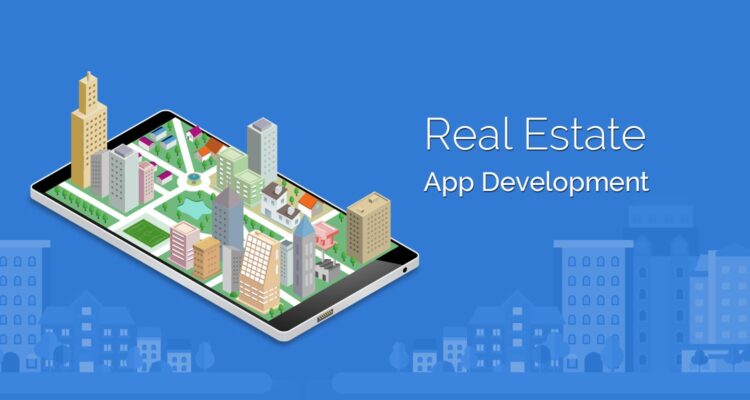The real estate sector in the UAE has always been at the forefront of innovation, known for its futuristic architecture, luxurious developments, and high-tech business operations. As the digital transformation wave continues to reshape industries, Artificial Intelligence (AI) and Augmented Reality (AR) have emerged as game-changers in real estate app development. These technologies are redefining how developers, agents, and buyers interact, making property search, visualization, and transactions more seamless than ever before.
The Rise of Smart Real Estate in the UAE
Dubai and Abu Dhabi have become global hubs for smart property investments. From intelligent infrastructure to digital platforms, the UAE’s real estate landscape is rapidly evolving. Today’s property buyers no longer rely solely on physical visits or traditional marketing — they depend on intuitive mobile apps that combine AI-driven insights and AR-powered experiences to make informed decisions.
This shift has fueled demand for AI and AR-powered real estate apps that offer personalized recommendations, immersive virtual tours, and predictive analytics for buyers and sellers alike.
Artificial Intelligence (AI): Empowering Smarter Real Estate Solutions
AI has become the backbone of modern real estate app development. It allows applications to analyze vast amounts of data, understand user behavior, and deliver smarter, faster, and more accurate results.
1. Personalized Property Recommendations
AI algorithms track user preferences, such as location, budget, property type, and lifestyle interests, to deliver highly personalized property suggestions.
For instance, a user interested in waterfront apartments in Dubai Marina will see curated listings tailored to their criteria — saving time and enhancing the buying experience.
2. Predictive Market Analytics
AI-powered apps can forecast property value trends, rental yields, and emerging investment zones by analyzing market data. This empowers investors to make data-driven decisions rather than relying on guesswork.
In Dubai, such insights are invaluable for identifying the next hot real estate areas before they boom.
3. Intelligent Chatbots and Virtual Assistants
AI chatbots integrated into real estate apps provide 24/7 customer support, answering inquiries about listings, scheduling property tours, and even initiating virtual consultations with realtors.
These chatbots can handle thousands of queries simultaneously, offering instant responses and improving user satisfaction.
4. Fraud Detection and Risk Management
AI enhances security by identifying fraudulent listings or suspicious activities on real estate platforms. Through machine learning algorithms, the system can detect irregular pricing patterns, fake documents, or duplicate property profiles — ensuring trust and authenticity in every transaction.
5. Streamlined Document Processing
Real estate transactions involve complex documentation. AI simplifies this by automating document verification and digital contract generation, reducing errors and saving valuable time.
This is particularly beneficial in the UAE, where property ownership often involves international buyers and regulatory compliance.
Augmented Reality (AR): Redefining the Way Buyers Experience Properties
While AI brings intelligence, Augmented Reality (AR) adds visual depth and engagement. AR technology allows users to visualize properties in 3D, take virtual tours, and experience spaces without being physically present.
1. Virtual Property Tours
AR-enabled apps let buyers explore properties remotely using immersive 360° virtual tours. Users can “walk through” apartments, inspect interiors, and view surroundings — all from their smartphones or VR headsets.
For international buyers investing in Dubai’s booming property market, this feature provides convenience and confidence in making purchase decisions.
2. Interactive Property Visualization
With AR, users can visualize how furniture, decor, or layouts would look in a space. For developers and interior designers, this feature helps showcase customization options before construction is complete — making it easier to convert potential buyers into clients.
3. Real-Time Location Mapping
AR apps integrate with GPS and mapping tools to provide real-time location data, displaying nearby schools, malls, hospitals, and transport facilities.
Buyers can simply point their phone camera toward a property to view relevant data overlays — turning every viewing into an informative digital experience.
4. Enhanced Property Marketing
AR is revolutionizing real estate marketing campaigns. Developers can now create interactive advertisements where users scan brochures or billboards to instantly view a 3D model of the property.
This interactive engagement boosts conversion rates and helps brands stand out in the competitive UAE property market.
AI and AR Integration: Creating the Ultimate Real Estate Experience
When combined, AI and AR deliver a powerful digital ecosystem for real estate apps.
Imagine an app that uses AI to recommend properties based on your preferences, while AR allows you to virtually tour each home from your living room. This synergy enhances engagement, builds trust, and accelerates purchase decisions.
For developers, integrating both technologies means offering:
- Smarter property matching
- Immersive buyer journeys
- Higher lead conversion
- Efficient property management
This fusion is shaping the next generation of PropTech solutions — a trend the UAE is embracing rapidly.
The Benefits for Real Estate Companies in the UAE
Real estate companies in the UAE adopting AI and AR-driven applications are gaining a competitive advantage.
Key benefits include:
- Increased buyer engagement through immersive experiences
- Higher conversion rates via personalized recommendations
- Reduced operational costs through automation
- Improved data-driven decision-making
- Enhanced international reach for property marketing
With these technologies, agencies can cater to both domestic clients and global investors, creating a seamless digital property ecosystem.
Challenges and Future Outlook
While AI and AR bring immense opportunities, implementation requires strategic planning and technical expertise. The challenges often include:
- High development costs
- Data privacy concerns
- Continuous technology updates
- Integration with existing CRM systems
However, as the UAE pushes forward with Smart City initiatives and digital transformation goals, these technologies will become increasingly accessible and affordable.
In the near future, we can expect fully AI-powered real estate ecosystems, where users can buy, sell, or rent properties with virtual assistance, instant financing options, and AR-enabled visualization tools — all within one app.
Conclusion
The integration of AI and AR in real estate app development is revolutionizing how the UAE’s property market operates. These technologies not only enhance the user experience but also drive efficiency, trust, and profitability for developers and agencies.
As Dubai continues to set global benchmarks for innovation, the future of real estate app development in the UAE will be defined by intelligent automation and immersive virtual experiences — reshaping the way we view and invest in properties forever.















